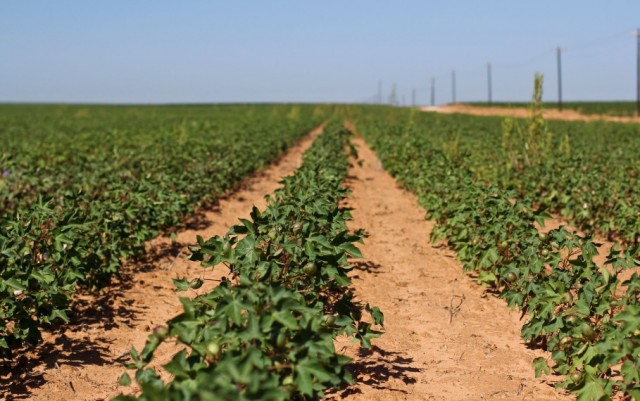
Agro-chemicals destroy soil microbial biodiversity: Amending soil with probiotics found to improve soil quality and biodiversity
Saturday, July 28, 2018 by Ralph Flores
http://www.realsciencenews.com/2018-07-28-amending-soil-with-probiotics-found-to-improve-soil-quality-and-biodiversity.html

Probiotics, usually discussed in health and diet, take a new form in a study led by researchers from the University of Missouri. In their study, published in the journal Agroforestry Systems, they revealed that probiotics could be used to enhance soil quality.
Agricultural practices greatly impact the soil biota – the clearing of land for farmland alone significantly affects the species of organisms in the soil. Coupled with the use of chemicals over the past few decades, this has led to improved land productivity as soil constraints have been overcome. However, this has led to severely negative outcomes for both the environment and soil diversity. One such example is the Haryana in India, where agricultural practices resulted in environmental degradation. Aside from the deterioration of soil quality, the Food and Agriculture Organization cautions that this could lead to a loss of biodiversity in surrounding areas, as well as a loss of essential adaptability traits when species endemic to the area become extinct.
Researchers posited that the use of alternative means such as probiotics would improve not only the microbial diversity in soil but also its enzyme activity. Probiotics – commonly known as live microbes that are beneficial for human health – are mainly used in food, drug, and dietary supplements. In agriculture, however, these are used to help break down organic matter to nutrients that the plant needs to grow. They also have various roles in plant health, including to antagonize various plant pathogens, induce immunity, or promote growth. (Related: Bacillus subtilis and the nutritional benefits of dirt.)
For the study, the Natural Resources Conservation Service Soil Health Farm in Chariton County, Missouri was used. Before the study, the land had been used to in farming conventional corn (Zea mays L.) and rotated with soybean (Glycine max L.). It was also exposed to tillage and the use of chemical fertilizers.
Probiotics were amended into the soil in differing quantities – 60 liters per hectare (ha−1), 90 L ha−1, and 120 L ha−1 over the course of a year (year−1). A non-treated part of the land was also used for control. These were equally applied in September 2013 and May 2014. Samples were collected after at depths ranging from 0 centimeters to six cm in depth. A greenhouse study was also done with similar treatments at quantities of 90 L ha−1, 120 L ha−1, and 150 L ha−1 on soil cores. Also, the microbial biomass of the soil was also studied using a phospholipid fatty acid analysis, as well as assayed to check for microbial activity.
The research team discovered that the biomass that contained saprophytic fungi, protozoa, and rhizobia were higher at the 120 L probiotic ha−1 year−1 dose over the control. In addition, the same field was also noted to have an increase in total biomass and the saprophytic fungi biomass in the greenhouse samples as well. Moreover, the 120 L probiotic ha−1 year−1 dose also contained soil fungal communities, rhizobia, dehydrogenase, β-glucosaminidase, and fluorescein diacetate hydrolase.
Researchers concluded that a soil amendment of 120 L probiotic ha−1 year−1 has the potential to improve the soil quality, based on the indicators.
Did you know that probiotics are good for your gut as well? Learn more about the many uses and benefits that probiotics have – both for your body and your plants – by heading to FoodScience.news today.
Sources include:





